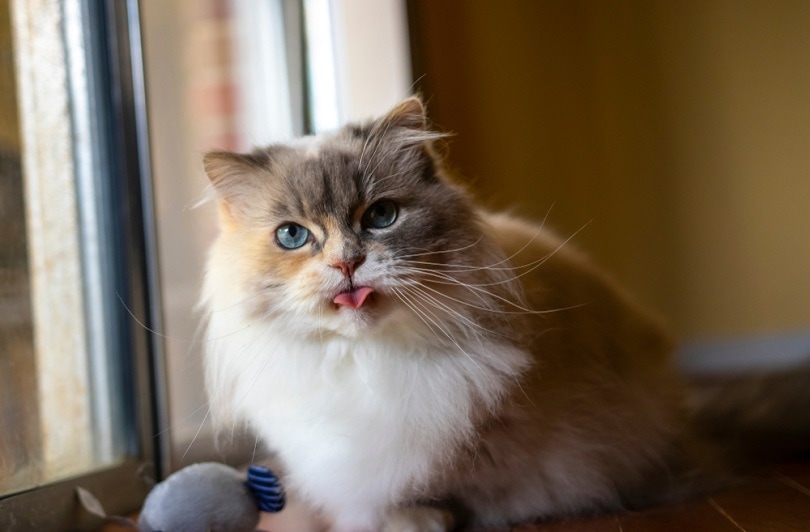

Is your kitty backed up? Yes, just like you, your feline can suffer from constipation. Though typically mild in cats, if left untreated, constipation can lead to more serious health risks. Moreover, constipation could also be an indicator of an underlying health condition. This is why it’s important to keep in mind that home remedies are not an alternative to professional medical advice. If your pet has a serious health issue, please consult your vet.
But if you want to boost your cat’s ability to do her business, homeopathic remedies might be able to help. Here are five home remedies to try to get your cat to go.

1. Fiber-Rich Foods
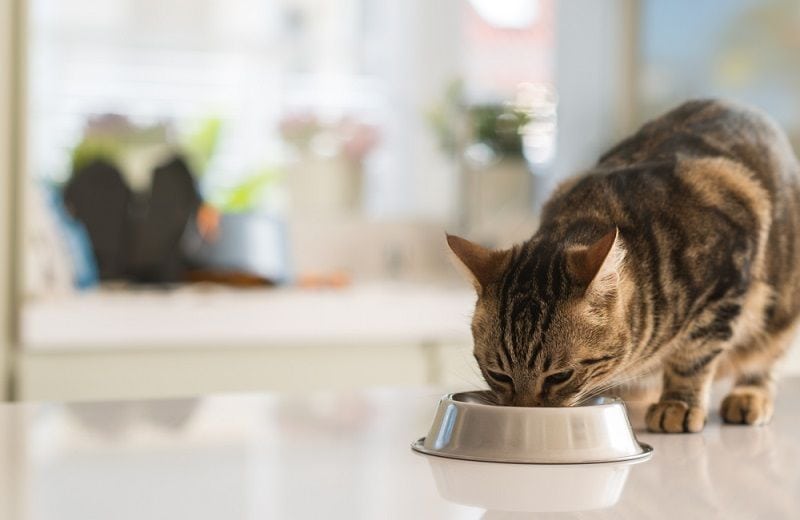
Eating a lot of roughage helps alleviate your digestive woes. Fiber-rich foods can also help your cat with her tummy troubles. And while fiber is an essential nutrient for all living things, it is often lacking in commercial cat diets.
Never, ever give your cat certain veggies, such as onions, chives, and garlic. You should also steer clear of feeding her grapes and raisins as these foods are toxic to felines.
Try giving your pet some bran cereal. Over-the-counter products, such as psyllium (marketed as Metamucil in the store) will help your cat’s digestive tract get back on track. As we mentioned earlier, consult with your vet before putting your pet on any type of treatment plan.
Pros
- Natural remedy for constipation
- Provides your cat with more fiber
Cons
- Natural bran cereal can be expensive
2. Hydration Station
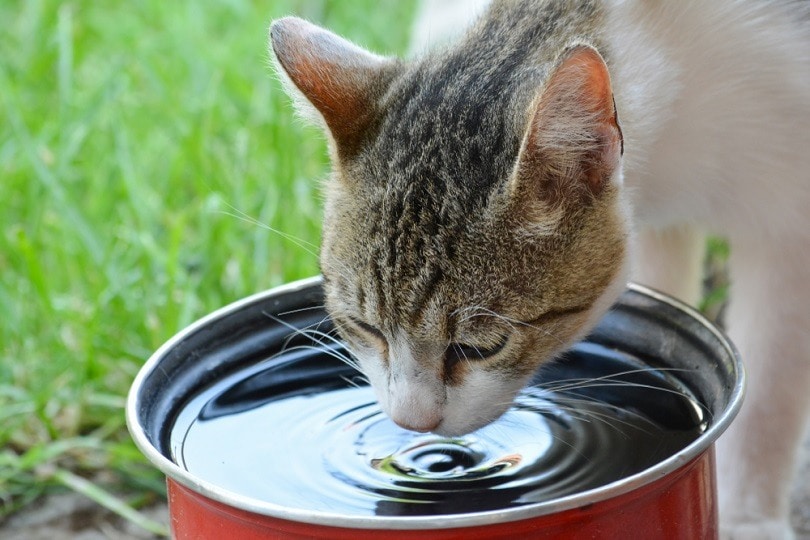
Dehydration is one of the leading causes of constipation. If your cat isn’t that great at drinking standing water, you can boost her water intake by feeding her more wet cat food. Additionally, you can entice your cat to drink by purchasing a cat water fountain or running the faucet when she’s near the kitchen sink.
Pros
- Hydration = healthy cat
- Cheap solution
Cons
- Some cats may not like to drink from water bowls
- Canned food is more expensive than dry food
- Wet food can increase the likelihood of periodontal disease
3. More Exercise
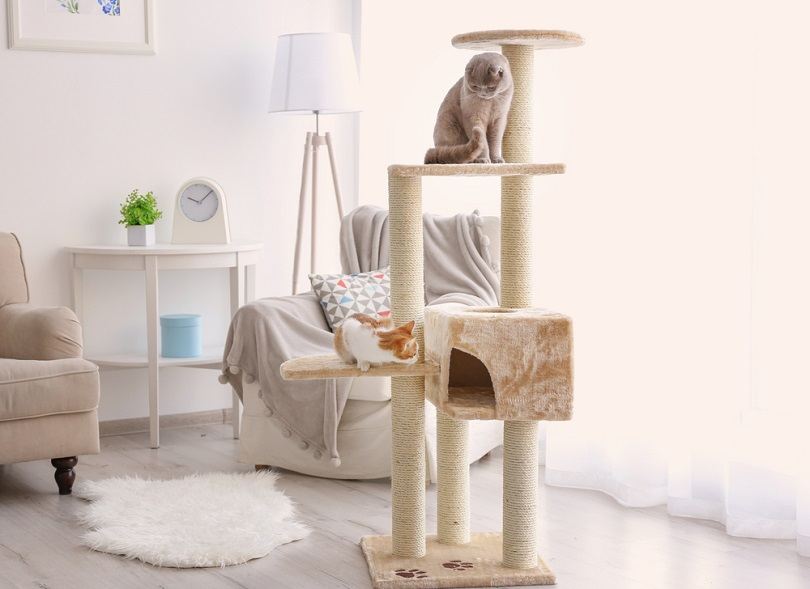
Physical activities not only get your cat moving, but it also helps to boost normal intestinal movement too. Encourage your cat to pounce and play by getting her interactive cat toys, catnip, and even a window seat so she can watch the birds outside.
Pros
- Helps promote a healthy weight
- Reduces stress
Cons
- Might be difficult to do in apartment settings or with elderly cats
4. Add More Litter Boxes
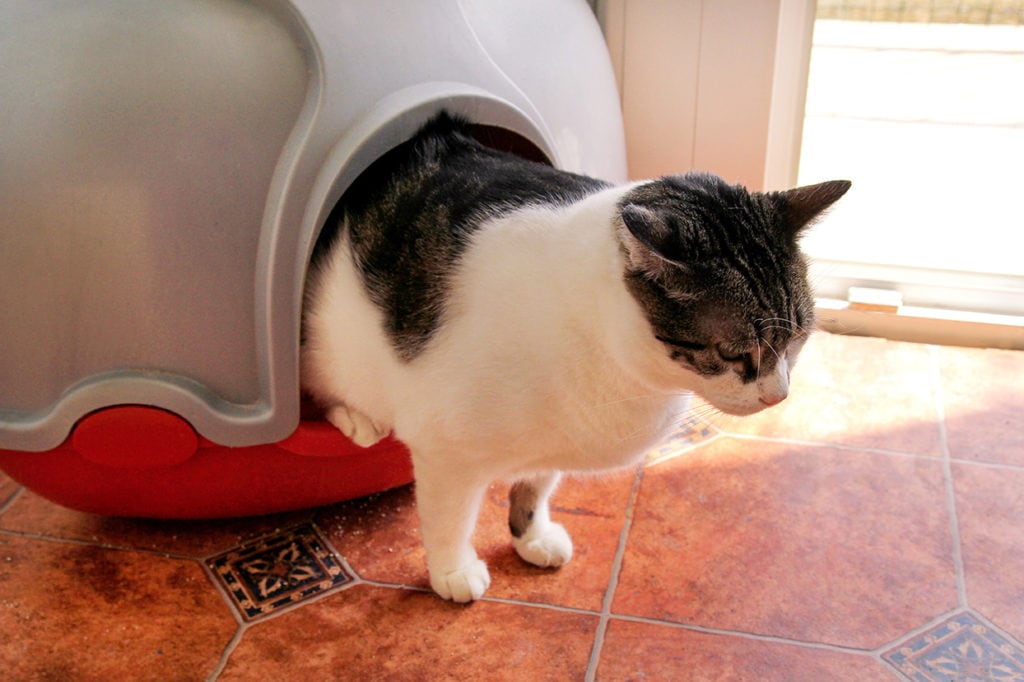
Cats are fickle creatures and will often turn up their noses at the thought of using a not-so-pristine litter box. Avoiding using the litter box could lead to constipation. If you can’t clean your litter box daily, consider adding more to your household. Keep a litter box in the basement, bathroom, or a spare bedroom so your cat always has an immaculate place to do her business.
Pros
- Encourages your cat to do her business
Cons
- More litter boxes to clean
5. Ease Stress
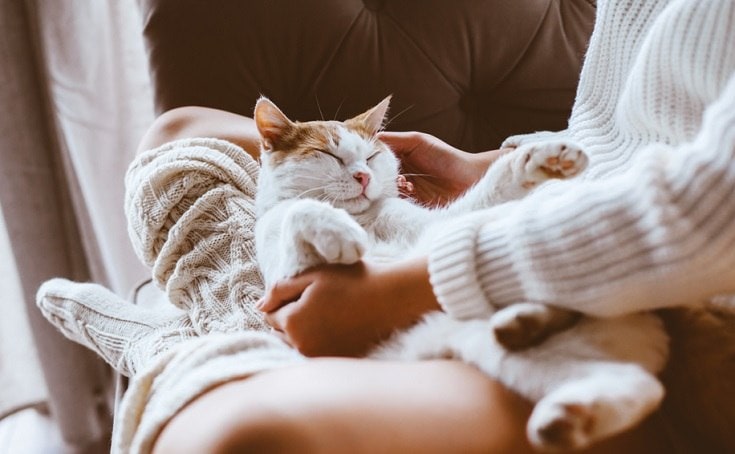
Stress and anxiety can cause constipation. If you’ve recently moved or introduced a new pet into the household, your cat could get anxious. Calming pheromones are a great, all-natural method to calm spastic kitties. Spray a pheromone solution on your pet’s favorite cat-bed or buy a diffuser.
Pros
- Relaxes cats
- Reduces clawing

Causes of Cat Constipation
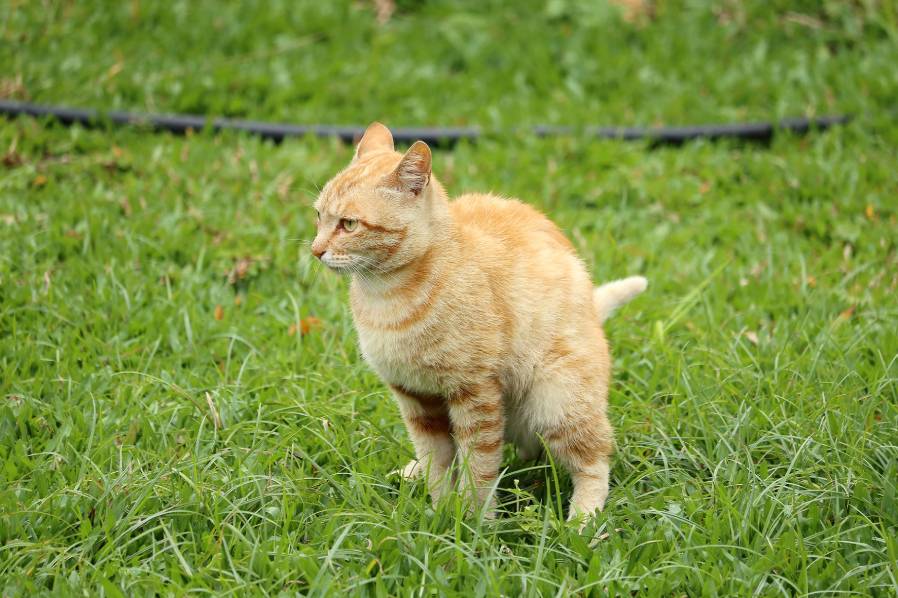
There are many possible culprits behind your cat’s constipation, including:
- Low-fiber diet
- Obesity
- Lack of exercise
- Stress
- Litterbox avoidance
- Dehydration
- Hairballs
- Intestinal obstruction

Common Constipation Symptoms
Some symptoms your cat may be exhibiting if she is constipated include:
- Vomiting
- Straining or pushing in the litter box
- Hard, dry stools
- Weight loss
- Lethargy
- Bloody stools

When to See a Vet
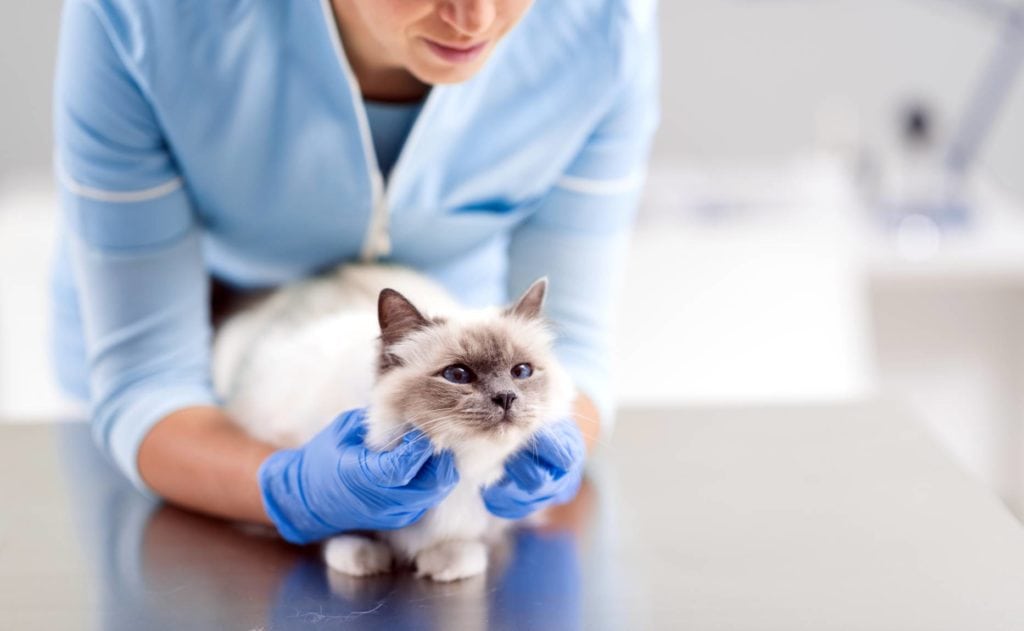
Though you should always seek professional help for any medical problem your pet might be experiencing, take your cat to the vet right away if:
- She hasn’t defecated in 48 hours
- You notice blood in her stool
- Increased fatigue
- She stops grooming
- No eating or drinking for more than 48 hours

Conclusion
If your cat isn’t pooping, it’s a problem. These five home remedies can help your cat get back to her regularly scheduled bathroom breaks. As always, check with your vet before you put your pet on any treatment program.
Featured Image Credit: Dave’s Domestic Cats, Shutterstock

Nicole is the proud mom of Baby, a Burmese cat and Rosa, a New Zealand Huntaway. A Canadian expat, Nicole now lives on a lush forest property with her Kiwi husband in New Zealand. She has a strong love for all animals of all shapes and sizes (and particularly loves a good interspecies friendship) and wants to share her animal knowledge and other experts’ knowledge with pet lovers across the globe.






